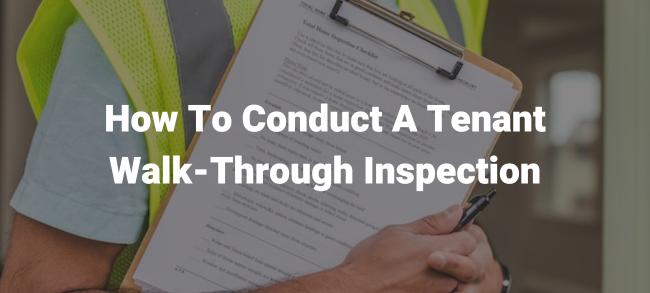5 Tax Benefits of Investing in Real Estate
Paying taxes may be mandatory, but it doesn’t have to be expensive.
Did you know that there are a number of tax benefits for real estate investors?
And that using these benefits can reduce your tax expenses by thousands of dollars ?
If you didn’t, then this post is for you!
Keep on reading to know five awesome tax incentives that you can use to minimize your rental property taxes today!
5 Popular Tax Benefits for Rental Property Owners
You are probably thinking about what your options are in terms of tax benefits.
Another question you should be asking is “How can I use them to my advantage?”
Here are five great tax benefits of investing in real estate:
1. Tax Deductions
First thing’s first, what is a tax deduction?
In most cases, these deductions are from the expenses you’ll incur while managing, maintaining , and preserving your investment property.
Tax deductions can offer you great benefits. Especially if you spend a lot to keep your property in good shape.
What is included in these expenses?
Generally, any expense that doesn’t add to the value of your property can be counted as a deductible.
Here is a short list of a few legal tax deductibles for property owners:
- Property management expenses
- Repair costs
- Maintenance expenses
- Insurance premiums
- Mortgage interest payments
- Tenant screening and acquisition expenses
- Marketing costs
- Utility expenses
- Depreciation
2. Depreciation Tax Benefits
According to the IRS, investment properties have a shelf life of 27.5 years.
That means that after this period, your property will have outlived its usefulness.
You might still be wondering: how does depreciation work?
Using the fair market value of your property, you can calculate your property’s depreciation expense.
Basically, this expense covers your property’s exhaustion or wear and tear over time.
Now, to calculate depreciation, three factors come into play:
- Your property’s initial fair market value
- The depreciation period (in this case 27.5 years)
- The depreciation method (e.g. the Modified Accelerated Cost Recovery System (MACRS) method)
To calculate your annual depreciation expense, use this formula:
Depreciation expense = value of the property / the depreciation period
If you own a rental property worth $100,000, its depreciation expense will be:
Depreciation expense = $100,000 / 27.5 = $3,636
Every year, the government will allow you to deduct $3, 636 from your total taxable rental income as a depreciation expense.
To better understand this tax incentive, let’s use an example.
Let’s pretend that your property:
- Is worth $100,000
- Makes $10,000 in rent each year
- Incurs a total of $4,000 in expenses each year
Here’s how your tax obligation would be without depreciation :
Total taxable income = $10,000 – $4,000 = $6000
Annual tax owed = $6,000 X 25% (Federal income tax) = $1,500
However, if you factor in depreciation , here’s how your rental tax obligation will be:
Total taxable income = $10,000 – $4,000 – $3,636 = $2,364
Annual tax owed = $2,364 X 25% (Federal income tax) = $591
Amazing, right?
According to this example, you get to save $909 each year due to depreciation.
And if you have more than one property, your tax savings grow an even bigger amount.
3. Long-Term Capital Gains Tax Incentives
When it comes to investing in real estate, there are a few things you should know about capital gains.
For starters, capital gains are profits made from the sale of a property or investment.
There are two types of capital gains: long-term and short-term gains.
Short-term gains are profits arising from the sale of a property you’ve had for less than a year.
Unfortunately, in terms of tax incentives, short-term gains don’t have any. That means you’ll have to pay taxes for the sale at the normal rate.
However, long-term gains offer you great tax benefits.
How?
Long-term gains occur once the sale of a property is held for more than a year. These types of sales often have a lower tax rate .
Basically, the longer you own the property, the lower your tax rate will be when you decide to sell it.
4. 1031 Exchange Tax Benefits
According to Section 1031 of the Internal Revenue Code, you can swap your rental property for another without paying taxes.
The best part about this tax benefit is that it allows you to pass your property’s capital gains to another with little or no tax obligations.
But there is a catch.
These swaps have to meet a few conditions:
- The new property must be equal or greater in value than the old one
- Both the new and old properties must be “like kind” or similar
- The new property has to be used for productive purposes
- Some cash transfers may be subjected to tax
5. FICA Tax Benefits
The FICA or Federal Insurance Contributions Act is a 15.3% tax on employment income.
But this tax obligation varies according to the type of employment.
For example:
If you are employed, you won’t have to pay the full (15.3%) amount on your own.
That’s because the tax burden is split in two between you and your employer. Leaving each of you to pay 7.65% FICA tax.
However, if you are self-employed, then you’ll have to pay 15.3% in FICA tax.
Now, you may be wondering how this is beneficial.
Well, FICA taxes don’t apply to rental income.
But, if you are employed, it simply means that your overall tax burden will be lighter, as a result of your employer sharing your FICA tax obligation.
In summary, it’s quite clear that taxes can eat up a large chunk of your annual gross income.
But, using these tax benefits, you can cut down your tax burden by thousands of dollars.











